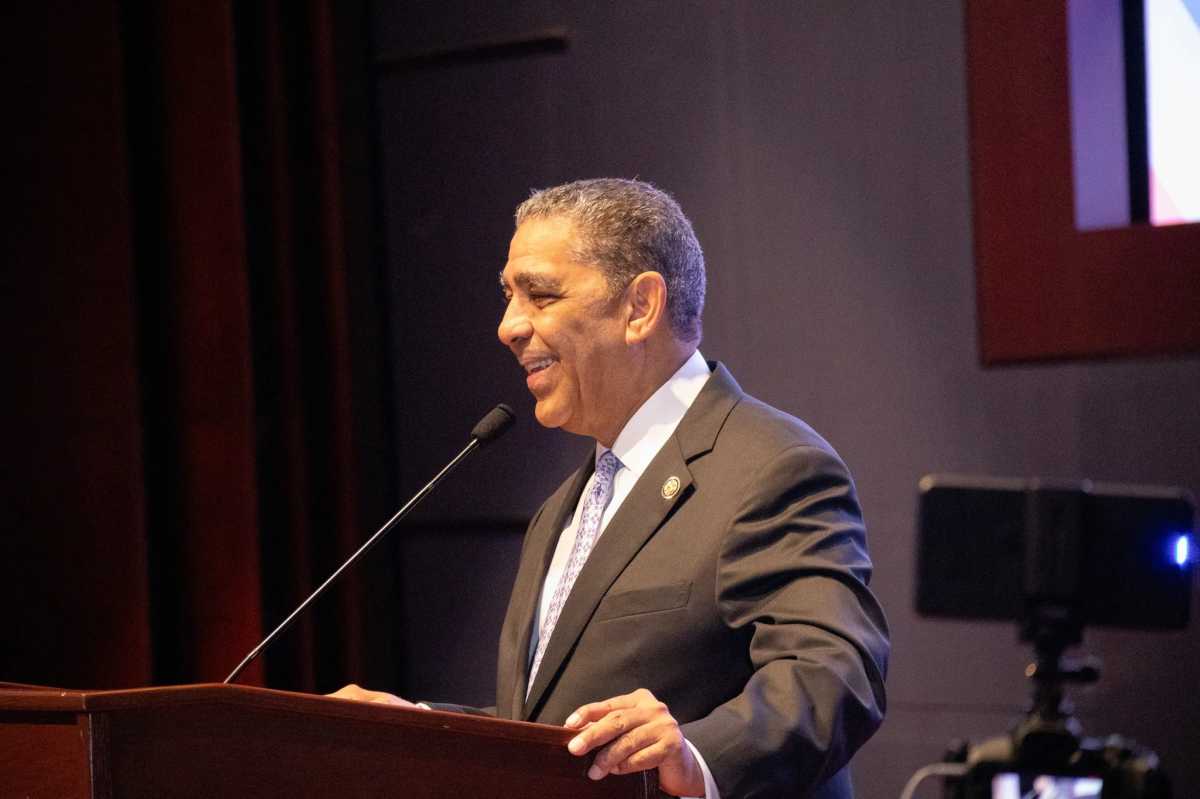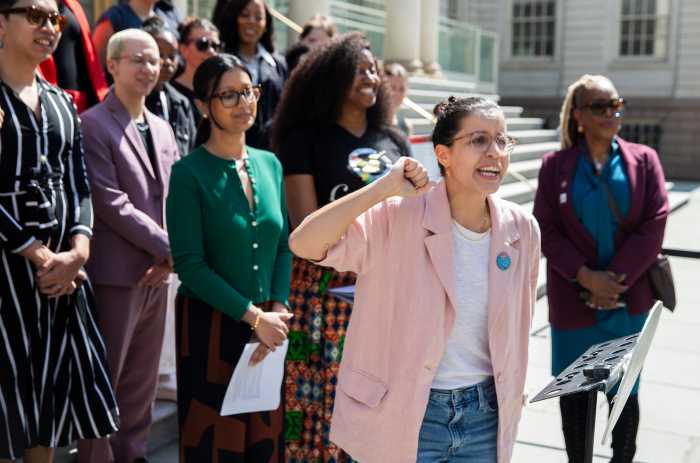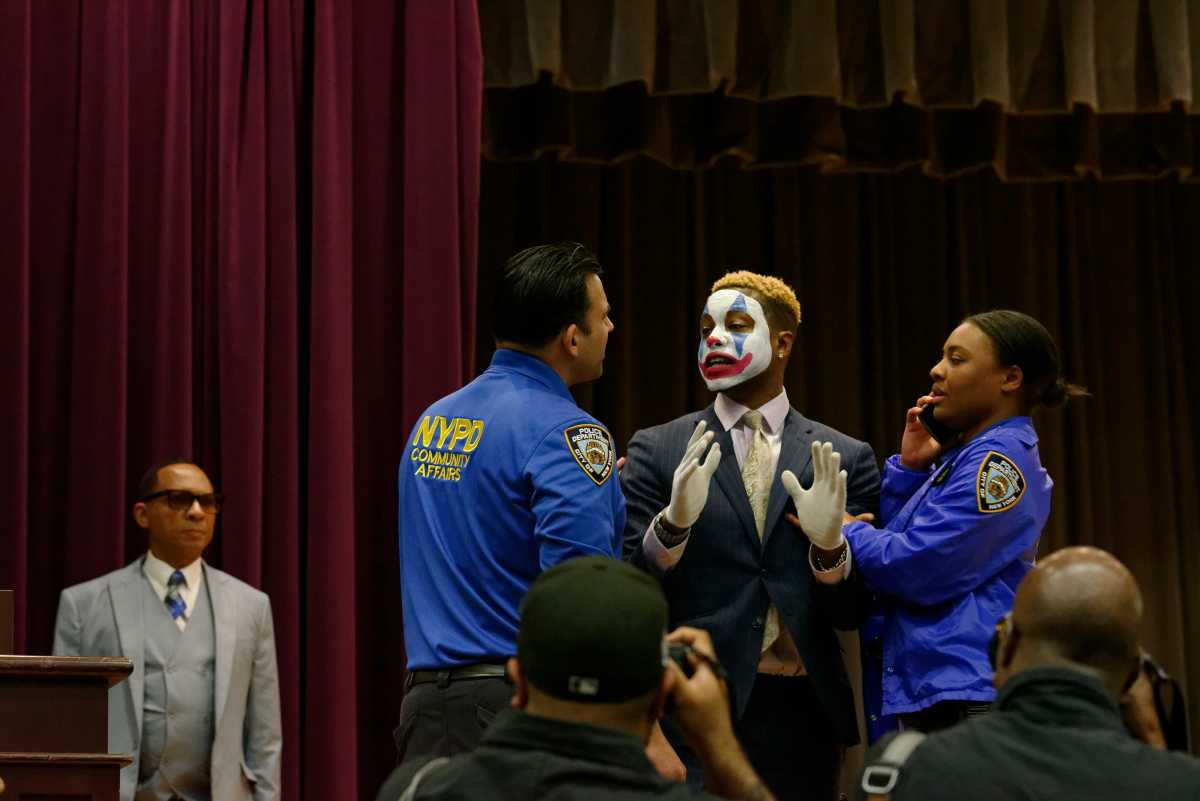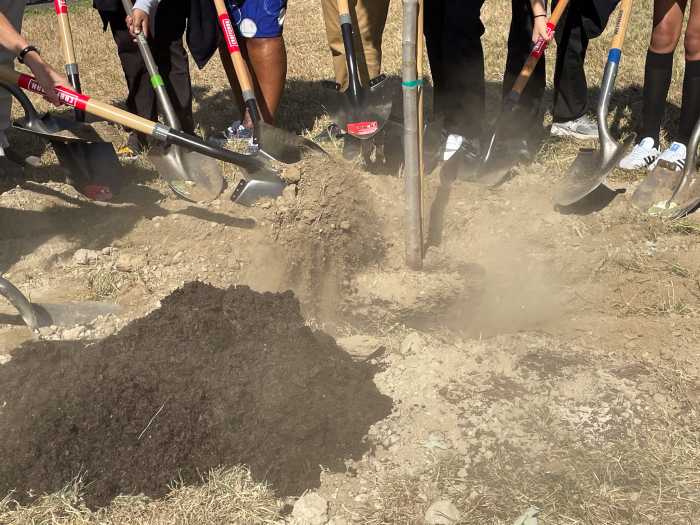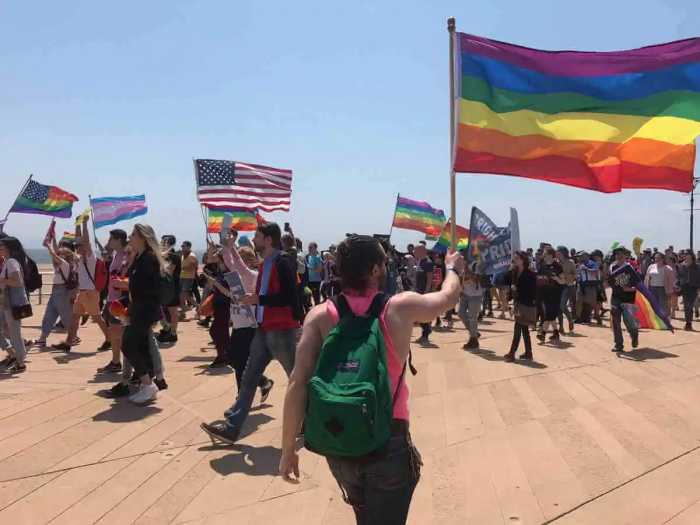A coalition of housing advocates and renters launched on Monday “Tenants Not Tourists,” a campaign to challenge New York City Council’s recent introduction of a bill that critics say threatens to exacerbate the city’s housing crisis.
During a heated rally outside of City Hall on Dec. 9, the coalition of representatives from various housing organizations voiced strong opposition to the measure, urging the City Council to reject it and protect the city’s scarce housing supply.
Intro. 1107, introduced last month, looks to amend current codes surrounding short-term rentals in New York. The bill would permit a permanent occupant with registration under the short-term rental law to host a short-term rental for a maximum of four guests along with their children.
However, members of the coalition view it as a potential catalyst for removing tens of thousands of rental units from the market. Advocates argue that the bill would enable private equity firms to dominate the rental market, fueling rent increases and further destabilizing the city’s housing landscape.
“The City Council can’t claim to be fighting for more housing and against deed theft while carving out loopholes that incentivize private equity vultures and weaken enforcement against bad actors,” said Whitney Hu, director of civic engagement and research for Churches United for Fair Housing. “We know New Yorkers are struggling to find affordable, stable housing in the middle of a crisis that demands immediate action — not giveaways to Airbnb and other corporate interests draining our housing supply.”
The rally coincided with the three-year anniversary of Local Law 18, known as the Short-Term Rental Registration Law, which was designed to regulate the short-term rental market by requiring hosts to register with the Mayor’s Office of Special Enforcement (OSE). This law aimed to bolster enforcement against illegal short-term rentals and protect the availability of affordable housing in the city.
OSE revealed data indicating that at least 55% of Airbnb’s revenue in New York City stems from illegal short-term rentals, a problem exacerbated by the lack of effective enforcement prior to the law’s introduction.
Despite Airbnb’s claims to the contrary, advocates maintained that Local Law 18 was a critical step toward enhancing accountability among landlords and homeowners engaging in illegal short-term rental practices.
“Amid the ongoing housing crisis, it is nonsensical to convert residential homes into short-term rentals for tourists, instead of using this housing stock to help New Yorkers secure permanent housing,” said Robert Desir, staff attorney in the Civil Law Reform Unit at The Legal Aid Society. “Intro 1107 directly contradicts the goals of Local Law 18 of 2022, which sought to expand our housing stock’s availability to low- and middle-income New Yorkers who are increasingly being priced out, and those seeking to move from shelter into permanent housing.”
According to the coalition, there has been a reported decline in listings on short-term rental platforms like Airbnb since Local Law 18 was implemented.
‘Making things work’
Local homeowners who supported Intro 1107, however, had a lot to say during the rally outside of City Hall — arguing that the bill represents economic opportunity for more New Yorkers rather than hurting renters.
Shortly after the event started, they showed up with signs like “home sharing + home affordability” and “home sharing helps me support my family.”

During conversations with amNewYork Metro, many pro-Intro. 1107 residents asserted the need for the law which would allow for short-term rentals for larger groups.
“I have a legal two-family home that I want to rent in the short term. I want to be able to use my home to meet my financial needs. I want to be able to support my family,” Jeanne Raleigh, a homeowner in support of Intro 1107, told amNewYork Metro at the rally.
Raleigh, who previously rented part of her home out for short-term rentals, said the rentals were like a stream of income for her family.
Alex, another homeowner who chose not to share her last name, said that her previous short-term leases made the most sense for her and her family.
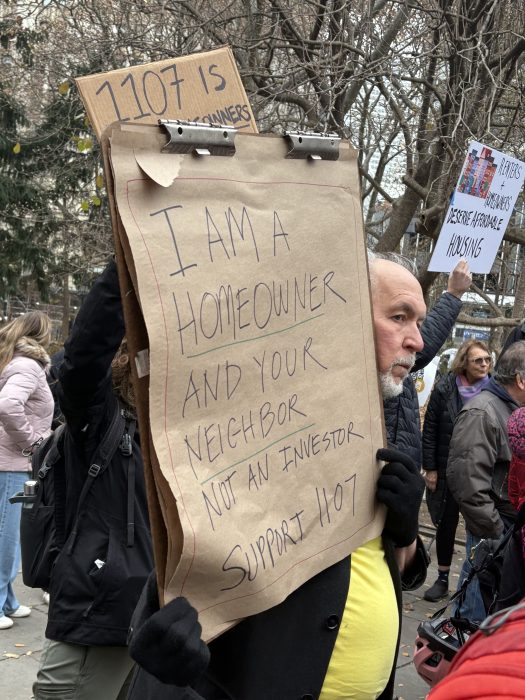
Opponents of Intro 1107 are particularly alarmed by its provisions, which would exempt owners of one- and two-family homes from enforcement and remove the requirement for short-term rental hosts to be present during guest stays. This, they argue, sets a dangerous precedent that could lead to a significant increase in residential properties being used solely as short-term rentals, thereby diminishing the available housing stock for New Yorkers in need.
Alex, who has owned her home in the East Village for 35 years, rejects these claims.
“I’m not a rich person, so home-sharing has allowed me to continue living in my house,” she said. “If I’m just renting my place out for the week, it doesn’t suddenly go on the market. It’s still my home. I still own it. I’m just making things work.”
Airbnb representatives said that while Local Law 18 looked to protect affordable housing, the housing market has remained unaffected by its provisions.
“This bill aims to fix an overly restrictive short-term rental law that, in the last year, has failed to decrease rents in NYC and only increased hotel rates exorbitantly for travelers,” Nathan Rotman, director of Policy for Airbnb, said in a statement. “The bill [Intro 1107] makes common sense and marginal updates to the existing law [Local Law 18] by allowing New Yorkers to share their primary homes and yet, the big hotel chains are using scare tactics to exploit one of the biggest social challenges of our time to boost their profits with sky high nightly rates – it’s time to fix a broken law that hasn’t helped housing but has padded hotel industry pockets at everyone else’s expense.”
The “Tenants Not Tourists” coalition includes a diverse range of organizations focused on housing rights, including Citizen Action of NY, the Coalition Against Illegal Hotels, Make the Road New York, the Hotel & Gaming Trades Council and others.
Intro. 1107 would make amends Local Law 18 by:
-
-
raising rentals maximums from two people to four
-
allowing listing to go unhosted at the time of a guest stay; hosts must currently be presents throughout the entire rental
-
allowing the host to restrict guest from areas i.e.closets, offices
-




